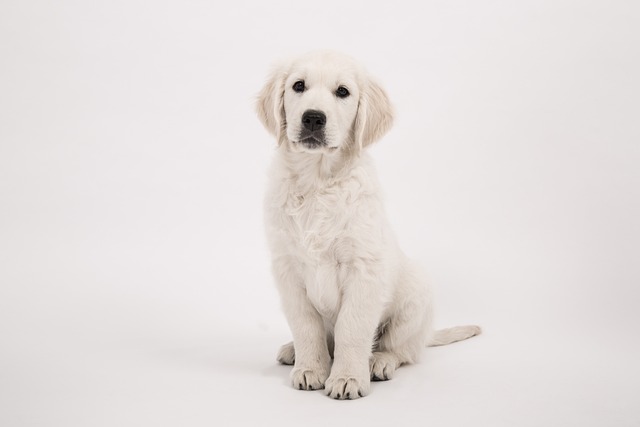
How can I tell if my dog's heatstroke is serious
Let’s be real: It’s a sticky August morning in Los Angeles, and you took your 2-year-old Golden Retriever, Max, for a walk a little later than usual
There’s nothing like snuggling a happy dog,’s hard to enjoy when that cozy moment is overshadowed by a stubborn, unpleasant smell. If your pup’s odor lingers despite baths, let’s explore gentle, effective ways to tackle it—with their comfort and health in mind every step of the way.
Start by understanding where the smell comes from. Dogs have a natural scent, but strong, persistent odors often signal a need for closer attention. Skin issues top the list: allergies, dryness, or infections can cause a musty smell. Check for redness, itching, or flaky patches—especially in warm, foldable areas like armpits or under the tail. A vet visit can rule out medical causes and recommend safe, pH-balanced shampoos tailored to their needs.
Bathing habits matter more than you think. Overwashing strips their skin of protective oils, leading to excess oil production and stronger odors. Most dogs only need a bath every 4-6 weeks (unless they’re rolling in mud, of course!). Use lukewarm water and a gentle, vet-approved shampoo—skip human products, which can irritate their skin. Rinse thoroughly to remove all residue, as soap left behind traps dirt and bacteria.
Don’t forget the “hidden” odor hotspots. Ears, especially in floppy-eared breeds like Cocker Spaniels or Basset Hounds, can harbor yeast or bacteria. Gently clean them weekly with a vet-recommended solution (never insert anything into the ear canal) to prevent that damp, musty smell. Paws are another culprit: wipe between their toes after walks to remove dirt, salt, or debris that can build up and create a funky scent over time.
 Dental hygiene plays a big role in overall odor. Bad breath from tartar or gum issues doesn’t just affect their mouth—it can make their whole face smell. Brush their teeth 2-3 times a week with dog-specific toothpaste (never human varieties, which can be toxic) and offer dental chews or toys that promote gum health. A fresh mouth makes snuggles much more enjoyable for everyone!
Dental hygiene plays a big role in overall odor. Bad breath from tartar or gum issues doesn’t just affect their mouth—it can make their whole face smell. Brush their teeth 2-3 times a week with dog-specific toothpaste (never human varieties, which can be toxic) and offer dental chews or toys that promote gum health. A fresh mouth makes snuggles much more enjoyable for everyone!
Diet and digestion also impact how your dog smells. A diet low in quality proteins or high in fillers can lead to dull coats and strong body odor. Talk to your vet about switching to a balanced diet with omega-3 fatty acids (found in fish oil or certain kibbles) to support healthy skin and a shiny coat. Probiotics can even help reduce gas and stool odor, making cleanup and cuddles more pleasant.
Environmental factors can cling to their fur, too. Smoke, cooking smells, or even scented household products can linger on their coat and mix with natural oils. Use hypoallergenic, unscented detergents to wash their bedding and towels, and avoid spraying perfumes or air fresheners directly on them—these can irritate their sensitive noses and skin. Regularly vacuuming your home helps remove trapped dander and odors, too.
For dogs with thick or double coats, proper drying after baths is crucial. Moisture trapped near the skin creates the perfect environment for bacteria to grow, leading to that “wet dog” smell that seems impossible to escape. Use a towel to absorb excess water, then a low-heat blow dryer on the lowest setting (kept at a safe distance) to dry deep into the fur. Brushing daily also helps distribute natural oils and prevent matting that traps odor.
When in doubt, consult your vet. Persistent or unusual odors—like a sweet, chemical-like smell—could indicate underlying health issues, from thyroid problems to urinary tract infections. Your vet can perform a quick exam and recommend targeted solutions, whether it’s medicated shampoo, dietary changes, or treatment for an infection. Addressing health concerns early keeps your pup comfortable and odor-free for the long haul.
Remember, the goal isn’t to erase your dog’s natural scent—it’s to ensure they smell clean, healthy, and happily themselves. Approach odor control with patience, focusing on gentle care and proactive habits rather than harsh chemicals or over-bathing. Each small step—like a gentle ear clean, a dental chew, or a mindful bath—shows your dog how much you care, while creating a home where snuggles are always warm, wonderful, and wonderfully fresh.

Let’s be real: It’s a sticky August morning in Los Angeles, and you took your 2-year-old Golden Retriever, Max, for a walk a little later than usual

You're enjoying a summer afternoon at the park when you notice your dog has stopped panting and appears disoriented - their gums are bright red

Let’s paint the picture: You’re in your Denver apartment, watching your 4-year-old Boston Terrier, Ruby, plop down mid-play session with her favorite toy

Many dog owners notice their pets nails seem shorter after regular walks,but how much does this daily activity actually help?The answer depends on where you walk—concrete sidewalks or asphalt streets gently file nails as a dog's paws hit the ground

Most dog owners notice their pup scooting across the carpet at some point, but few connect it to impacted anal glands. These small sacs near a dog’s rectum secrete a scent for marking territory

Most vets agree that regular dog teeth cleaning is key to avoiding painful dental issues later. For healthy adult dogs, a professional cleaning at the vet’s office every 12 to 18 months usually works well.